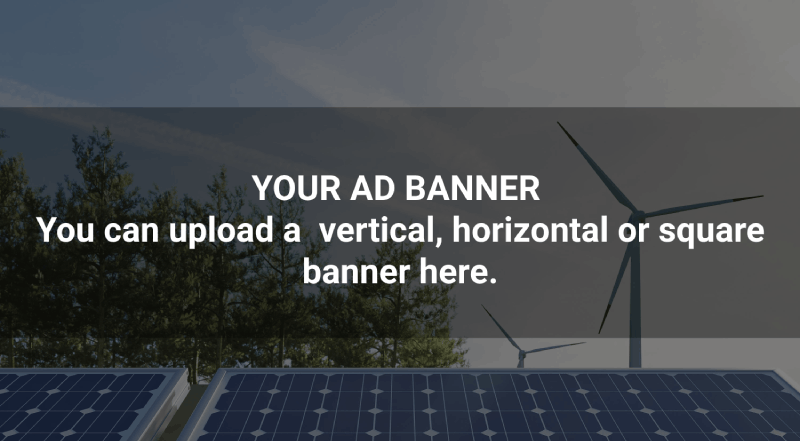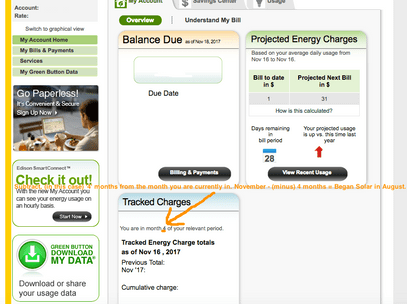1. GENERAL ACCEPTANCE OF TERMS OF USE
These terms of use (Terms of Use) is a contract entered into between You (you, your, yours) and Greenectus, LLC a California company (we, us, our, Greenectus). These Terms of Use, together with our Reviews and Ratings Policy, Payments Policy, Jobs Page and Service Contracts Policy, and Privacy Policy, which are herein incorporated by reference, govern your use of and access to the Site, including any content, functionality, software, and services offered on or through the Site (the Services)
Please read these Terms of Use carefully before you start to use the Site. BY USING OUR SITE OR SERVICES, YOU ACCEPT AND AGREE TO BE BOUND AND ABIDE BY THESE TERMS OF USE. IF YOU DO NOT AGREE TO THE TERMS OR CONDITIONS CONTAINED IN THIS AGREEMENT OR ANY PORTION OF THE TERMS OF USE YOU MUST NOT ACCESS OR USE THE SITE OR SERVICES.
IF YOU AGREE TO THESE TERMS OF USE ON BEHALF OF AN ENTITY OR AGENCY, OR IN CONNECTION WITH PROVIDING OR RECEIVING SERVICES ON BEHALF OF AN ENTITY OR AGENCY, YOU REPRESENT AND WARRANT THAT YOU HAVE THE AUTHORITY TO BIND THAT ENTITY OR AGENCY TO THE TERMS OF THIS AGREEMENT AND THE ENTIRETY OF THE TERMS OF USE AND FURTHER UNDERSTAND AND AGREE THAT YOU ARE BINDING BOTH YOU AND THAT ENTITY OR AGENCY TO THIS AGREEMENT AND THE ENTIRETY OF THE TERMS OF USE. IN THAT EVENT, “YOU,” “YOUR,” AND “YOURS” WILL REFER AND APPLY TO YOU AS AND INDIVIDUAL AND THAT ENTITY OR AGENCY.
For any questions about these Terms of Use, please contact us at here.
2. DEFINITIONS
a. Account means an account registered by a User through the Site, for the purpose of accessing and using the Services.
b. Authorized User means an employee, agent, or contractor who is acting for your benefit and on your behalf who is deemed eligible by you to access and use the Site and Services and register and use an Account.
c. Confidential Information means any information one party discloses to another and is (a) clearly marked as confidential by the disclosing party; (b) orally designated as confidential at the time of disclosure; (c) any source code disclosed by us; (d) any names of actual or potential customers of either party; or (e) any other nonpublic, sensitive information disclosed. Confidential Information does not include any information that is (f) in the receiving party’s possession at the time of disclosure; (g) independently developed by the receiving party without use of or reference to any Confidential Information; (h) becomes known publicly, before or after disclosure, other than as a result of the receiving party’s improper action or inaction; or (i) is approved for release in writing by the disclosing party.
d. Content Utilization means particular, but not exclusively, the ability to amend, edit and translate, as well as to store, reproduce, disseminate, send, disclose non-publicly and otherwise make available the User Content, including, without limitation, all Intellectual Property you create.
e. Employee means any User hired by another User to perform specific acts, obligations, or duties, whether the Employee meets the definition of an employee as defined by California Labor Code Article 2 §3351, a contractor, for any other reason.
f. Intellectual Property means all patent rights, copyright, mask work rights, moral rights, rights of publicity, trademark, trade dress and service mark rights, goodwill, trade secret rights and other intellectual property rights as may now exist or hereafter come into existence, and all applications therefore and registrations, renewals and extensions thereof, under the laws of any state, country, territory or other jurisdiction, including without limitation, all information, data, well logs, contracts, databases, maps, records, code, products, materials, services, software applications and tools, APIs, design elements, text, images, photographs, illustrations, audio and video contents, artwork and graphics, whether or not any particular item is available to the general public.
g. Job means any User-created job posting made available on the Site or through the Services and created to solicit any potential Employee to provide services to that User, whether the User is an Organization, Service Provider, individual, or other entity, whether the Employee is an Organization, Service Provider, individual, or other entity, and whether the job posting is soliciting an employee as defined by California Labor Code Article 2, a contractor, for any other reason.
h. Service Contract means any agreement made between Users to perform any act, obligation, or duties and/or compensate or pay for any such act, obligations, or duties
i. Service Provider means any person, persons, or entity whose publicly available business information is made available for review on the site, has an Industry Professional or Organization Account and makes business information services available to other Users, or otherwise advertises their business dealings on or through the Site in order to obtain clients, customers, or subscribers.
j. Substantial Change means a change to the terms of the Terms of Use that reduces your rights or increases your responsibilities.
k. User Content means any information, images, comments, posts or other content created, uploaded, shared, published or distributed by a User using this website, either directly or indirectly.
l. User or Users means any person, persons, or entity engaging with or accessing any part of or information contained on or within the Site, whether you, your Authorized User, or any third party.
m. Visitor means any person, persons, or entity engaging with or accessing any part of or information contained on or within the Site, whether you, your Authorized User, a User, or any third party.
3. CHANGES TO THE TERMS OF USE
a. We may revise and update these Terms of Use from time to time in our sole discretion by posting a revised version on the Site. All changes are effective immediately upon becoming publicly available through the Site (the Effective Date). We will provide reasonable advance notice of any amendment that includes a Substantial Change by posting the updated agreement on the Site, providing notice on the Site, and/or sending you notice by email. If the Substantial Change includes any increase to fees charged by us, we will provide at least 30 days’ advance notice of the change, but are not required to provide any advance notice for changes resulting in a reduction in any fees or any temporary or promotional fee change.
b. YOU UNDERSTAND THAT YOUR CONTINUED USE OF THE SITE OR SERVICES FOLLOWING THE EFFECTIVE DATE MEANS THAT YOU ACCEPT AND AGREE TO BE BOUND BY ANY CHANGED TERMS, INCLUDING THE ARBITRATION PROVISION IN SECTION 11 (SUBJECT TO YOUR RIGHT TO OPT OUT OF THE ARBITRATION PROVISION AS PROVIDED IN THAT SECTION). IF YOU DO NOT ACCEPT THE REVISED AGREEMENT IN ITS ENTIRETY, YOU AND YOUR AUTHORIZED USERS MUST NOT ACCESS OR USE THE SITE OR USE THE SERVICES AFTER THE EFFECTIVE DATE.
4. ACCOUNT CREATION AND CONFIDENTIALITY
a. Prior to creating an Account, you are solely responsible for ensuring that the use of the Site and Services in accordance with these Terms of Use in your jurisdiction of residence is permitted by applicable laws. If such use is not permitted by laws, you shall not access or use the Services. We have the right to refuse to provide you with an Account at our sole and absolute discretion, for any reason or no reason at all, in which case you shall not use the Services.
b. Types of Accounts. We provide three different types of Accounts: Industry Professional, Homeowner, and Organization. Users must select a type of Account to create and provide certain information before being granted access to certain Services. The type of Account selected may affect what, if any, Services are available to you at any given time.
c. Account Creation. Fill in the “Sign Up” form on the Site by providing the requested information. You will be given the opportunity to read the Terms of Use and the Privacy Policy. You can retrieve the documents from the named links and take notice of them. Prior to clicking “Create Account” to continue the sign-up process, you must confirm that you accept these Terms of Use and have acquainted yourself with our Privacy Policy. Further, you must confirm that you are at least 18 years old. After providing the requested information, by clicking “Create Account” your Account is created.
d. You may use the Services only within the intended purpose and permitted use. You acknowledge that the purpose of the Account is to provide you with access to the Services with tools to manage your User Content. Any use for other purposes or particular misuse of the Services or Site, is not permitted. You agree not to use your Account, the Site, or the Services or permit your Authorized Users to use any Account, the Site, or the Services in order to:
(i) upload, post, email, transmit or otherwise make available any content that is unlawful, harmful, threatening, abusive, fraudulent, harassing, insulting, defamatory, vulgar, obscene, libelous, invasive of another's privacy, hateful or racist, that glorifies violence, is pornographic, unethical or otherwise prohibited or objectionable;
(ii) impersonate any natural or legal person, or falsely state or otherwise misrepresent your affiliation with a natural or legal person;
(iii) transmit or otherwise make available any content that you do not have a right to make available, that contains software viruses or any other computer code, files or programs designed to interrupt, destroy or limit the functionality of any computer software or hardware or telecommunications equipment;
(iv) engage in any activity that attempts to reverse engineer, disassemble, decompile, hack or extract any proprietary software used to maintain the Site or Services;
(v) Create User Content or otherwise upload to, put on, or share through the Site Confidential Information which you should not have access to or otherwise violates any other person or legal entity’s Intellectual Property;
(vi) interfere with or disrupt the Site, Services, or servers or networks connected to the Site or Services, including but not limited to hacking or bypassing any measures we may use to prevent unauthorized access to the Site or Services; and/or
(vii) violate any applicable national or international rules and laws, as well as rights of third parties;
(viii) For any unlawful purpose;
(xi) to solicit others to perform or participate in any unlawful acts or to engage in acts that are unrelated to the purpose of the Site and Services;
(x) to spam, phish, pharm, pretext, spider, crawl, or scrape;
(xi) to interfere with or circumvent our security features;
(xii) or for any other reason we may, at our sole and absolute discretion, determine is inconsistent with the purpose of the Site or Services.
e. Failure of observing the limits of purpose and permitted use of your Account, the Site, and the Services is deemed a material breach of these Terms of Use. We shall be entitled to – without prejudice to any other rights – terminate your Account in accordance with Section 11. You may not use or access the Site or Services if we have terminated your Account or otherwise elect not to provide you access to the Site or Services.
f. You acknowledge that your Account is personal to you, and you are obliged not to provide any other person with access to the Site or Services or portions of it using your email address, password, or other security information.
g. You are responsible for maintaining the confidentiality of your data and for monitoring and, if necessary, restricting access to your devices and those of your Authorized Users. Any email address, password, or any other information chosen by you or provided to you as a part of our security procedures, must be treated as confidential, and you must not disclose it to any other person or entity. You must exercise caution when accessing your Account from a public or shared computer so that others are not able to view or record your password or other Account information.
h. You will use any and all commercially reasonable efforts to prevent unauthorized use of Accounts assigned to you and your Authorized Users and will promptly notify us, in writing, if you suspect that an Account is compromised or misused or if any Authorized User's user ID, password or other access credentials are lost, stolen, compromised or misused.
i. You understand, acknowledge, and agree that to the extent permitted by applicable law, we shall not be responsible or liable, directly or indirectly, for any damage or loss caused or alleged to be caused by, or in connection with the unauthorized use of your Account.
j. You understand, acknowledge, and agree that any Account information must be accurate, current, and complete, and you agree that any Account information will be kept accurate, current, and complete. We may identify you and your Authorized Users, and send notices, statements, and other information by e-mail or through your and your Authorized Users' Accounts.
k. You understand, acknowledge, and agree that we have the right, but not the obligation, to monitor you and your Authorized Users' Accounts for any reason. You further understand, acknowledge, and agree that we may:
(i) remove anything that is, in our sole discretion, unacceptable, inappropriate, or not in compliance with these Terms of Use,
(ii) disclose data to law enforcement agencies or authorities who may investigate reports of misuse or abuse of the Account or the Site and Services; and
(iii) suspend or terminate any Authorized User's access to the Account, at any time and without prior notice.
5. INTELLECTUAL PROPERTY AND THE LICENCE FOR THE USE OF THE SITE AND SERVICES
a. Greenectus, the look and feel of the Site and Services, page headers, custom graphics, icons, and scripts, and all other product or service names or slogans displayed on the Site or through the Services the property of Greenectus, and its successors, assigns, licensors, or suppliers, and may not be copied, imitated or used, in whole or in part, without the prior written permission of Greenectus or the applicable trademark holder. Unless specifically provided in the Terms of Use or if you have agreed otherwise in writing with us, nothing in these Terms of Use gives you a right to use the Site, Services, and its content, our trademarks or other intellectual property of Greenectus. All other trademarks, registered trademarks, product names and company names or logos mentioned on the Services are the property of their respective owners. Except to the extent noted elsewhere in this Agreement, reference to any products, services, processes or other information, by trade name, trademark, manufacturer, supplier or otherwise does not constitute or imply endorsement, sponsorship or recommendation thereof by Greenectus.
b. You understand, acknowledge, and accept that you and your Authorized Users are obtaining only limited rights to use, access, interact with, and view the Products and Services in accordance with these Terms of Use and that irrespective of any use of the words "purchase," or "sale," or similar words, no ownership rights are transferred or assigned by us.
c. We grant you a personal, non-exclusive, non-transferable, non-sublicensable, revocable license to use the Site and Services for your personal or internal business purposes as described in these Terms of Use, for the period you access the Site and Services. Any Intellectual Property provided through or used to operate the Site and Services is licensed, not sold, to you. You acknowledge that you have no right to access the Site or Services in source-code form. We may inform you, by notice within the Services, on the Site, by email, or otherwise, that the Site or Services contain intellectual property governed by the license of a third party and you agree to abide by the terms of any such license.
d. Unless you have been permitted in writing to do so in a separate agreement with us, you have no right to rent, lease, lend, sell, redistribute, sublicense, copy, reverse, engineer, decompile, disassemble, translate, modify, distribute copies of, make available, adapt, or create derivative works based on the Site, Services, or any related Intellectual Property owned or licensed by us.
e. Neither you, your Authorized Users, nor any person or entity acting on your behalf or by your or your Authorized User’s Account may copy, reproduce, publish, transmit, transfer, sell, rent, modify, create derivative works from, distribute, repost, perform, display, or in any way commercially exploit the Site or Services, nor may you infringe upon any of the copyrights, trademarks, patents, trade secrets, or other intellectual property rights anticipated in the future contained in, on, or within the Site or Services. You and your Authorized Users may not remove or alter, nor cause to be removed or altered, any copyright, trademark, or other proprietary notices or visual marks and logos from the Site or Services.
f. By entering or making available User Content via the Site or Services, you represent and warrant that the User Content is in accordance with these Terms of Use, does not violate the rights of third parties and that you are entitled to grant the right of Content Utilization. You shall indemnify us against all claims brought by third parties against us in connection with the exercise our right of Content Utilization.
g. For all User Content, you grant us, free of charge, a transferable, sublicensable, non-exclusive, irrevocable, worldwide right of Content Utilization and for the maximum term permitted under applicable law and which is unlimited in terms of content, to use these User Content for any purpose including but not limited to the purposes of:
(i) providing the Services;
(ii) conducting research, develop new products and services;
(iii) predictive analytics and insights;
(iv) improvement and further development of the Site and Services; and
(v) Content Utilization.
h. You agree to grant us a non-exclusive, worldwide, perpetual, irrevocable, royalty-free, sub-licensable right to exercise the copyright, publicity, and database rights to store or re-format your corporate information, including, but not limited to, your name and logo, if any, and display the same in any way as we choose, including, but not limited to, for our marketing purposes. We will only use personal information in accordance with these Terms of Use.
6. INTELLECTUAL PROPERTY INFRINGEMENT
a. For Service Providers who have not created an Account, the intellectual property objects displayed, including trademarks and copyrighted property, are sourced based on public information. We are not responsible for examining or evaluating the content or accuracy, and we do not warrant and will not have any liability or responsibility for any alleged inaccurate or infringing content. Greenectus operates on a "notice and takedown" basis. If you have any complaints or objections to User Content, including user messages posted on the Services, or if you believe that material or content posted on the Services infringes any intellectual property that you hold, please contact us immediately in the manner that follows:
b. In accordance with the Digital Millennium Copyright Act of 1998, Title 17 of the United States Code, Section 512 (DMCA), Greenectus will respond promptly to claims of copyright or trademark infringement that are reported to the agent that we have designated to receive notifications of claims infringement (its Designated Agent). Our Designated Agent is:
(i) admin@greenectus.com
c. If You are a copyright or trademark owner (or authorized to act on behalf of the copyright or trademark owner) and believe that Your work’s copyright or trademark has been infringed, please report your notice of infringement to us by providing our Designated Agent with a written notification of claimed infringement that includes substantially the following:
(i) a physical or electronic signature of a person authorized to act on behalf of the owner of an exclusive right that is allegedly infringed;
(ii) identification of the copyrighted work or trademark claimed to have been infringed, or, if multiple copyrighted works or trademarks at a single online site are covered by a single notification, a representative list of such works at that site;
(iii) identification of the material that is claimed to be infringing or to be the subject of infringing activity and that is to be removed or access to which is to be disabled, and information reasonably sufficient to permit us to locate the material;
(iv) information reasonably sufficient to permit us to contact you, such as an address, telephone number, and, if available, an electronic mail address at which You may be contacted; a statement that You have a good faith belief that use of the material in the manner complained of is not authorized by the copyright or trademark owner, its agent, or the law;
(v) and a statement that the information in the notification is accurate, and under penalty of perjury, that you are authorized to act on behalf of the owner of an exclusive right that is allegedly infringed.
d. We will investigate notices of intellectual property infringement and take appropriate actions under the DMCA, in our sole and absolute discretion. Inquiries that do not follow this procedure may not receive a response.
7. NON-DISCLOSURE
a. Notwithstanding any right of Content Utilization, or other rights or licenses granted in these Terms of Use, no party shall use any Confidential Information for any purpose other than to facilitate the transactions contemplated by these Terms of Use. The party receiving any Confidential Information:
(i) shall not disclose Confidential Information to any employee or contractor of such receiving party, unless such person needs access in order to facilitate the transactions contemplated by these Terms of Use and executes a non-disclosure agreement with terms no less restrictive than those of these Terms of Use; and
(ii) shall not make known any Confidential Information to any third party without the disclosing party’s prior written consent. Without limiting the generality of the foregoing, the receiving party shall protect any Confidential Information with the same degree of care it uses to protect its own confidential information of similar nature and importance, but with no less than reasonable care.
b. The receiving party shall promptly notify the disclosing party of any misuse or misappropriation of any Confidential Information that comes to the receiving party’s attention.
c. Notwithstanding the foregoing, the receiving party may make known Confidential Information as required by applicable law or by proper legal or governmental authority. The receiving party shall give the disclosing party prompt notice of any such legal or governmental demand and reasonably cooperate with the disclosing party in any effort to seek a protective order or otherwise contest such demand, at the disclosing party’s expense.
8. UPDATES, ALTERATIONS, AND MODIFICATIONS TO OUR SITE AND SERVICES
a. We may, from time to time, modify, add to, suspend, or delete any aspect of Accounts or feature functionality within the Site and Services, in whole or in part, at our sole discretion and with or without notice. Such modifications, additions, or deletions may include but are not limited to content offered, hours of availability, and equipment needed for access or use of Accounts, Site, or Services.
b. Though we try to make Accounts, the Site, and Services available twenty-four (24) hours a day, seven (7) days a week, except for planned downtime for maintenance, we make no warranty or guarantees they will be available. We disclaim any warranty, express or implied, of availability of or access to the Accounts, the Site, or Services.
c. We do not warrant that your mobile device or computer will be able to access and support the Site or Services. You are solely responsible for ensuring that your mobile device or computer or your Authorized User’s mobile device or computer can access and support the Site or Services.
9. SERVICE PROVIDERS
a. We do not endorse and are not responsible or liable for any User Content, data, advertising, products, goods or services available or unavailable from, or through, any Service Provider. You agree that you should use or rely on such User Content, data, advertisement, products, goods or services, available or unavailable from, or through any Service Provider. We are not responsible or liable, indirectly or directly, for any damage or loss caused or alleged to be caused by or in connection with such use or reliance. Your dealings with, or participation in promotions of any Service Provider, and any other terms, conditions, representations or warranties associated with such dealings, are between you and such Service Provider exclusively and do not involve Greenectus. You should make whatever investigation or other resources that you deem necessary or appropriate before hiring or engaging any Service Providers.
b. We may provide links or otherwise direct you to Service Provider websites. We do not control or operate any such Service Provider websites. Any information you provide to these Service Provider websites is subject to the respective policies of those Service Providers, and not our policies. It is your responsibility to review such Service Provider policies, including any relevant privacy policies. You agree that we will not be responsible or liable for, and do not endorse any content, advertising, goods or services provided on or through these outside websites or for your use or inability to use such websites. We do not make any representations or warranties as to the security of any information (including, without limitation, credit card and other personal information) you might be requested to give to any Service Provider sites. You use Service Provider websites at your own risk.
c. You agree that we are not responsible for the accessibility or unavailability of any Service Provider or for your interactions and dealings with them, waive the right to bring or assert any claim against us relating to any interactions or dealings with any Service Provider, and release us from any and all liability for or relating to any interactions or dealings with Service Providers.
d. Without limiting the foregoing, your correspondence or business dealings with, usage of products or services of, or participation in promotions of, Service Providers found on or through the use of the Sites and Services, including payment for and delivery or fulfillment of any such related goods or services, and any other terms, conditions, warranties, or representations associated with such dealings, are solely between you and such Service Provider. You agree that we are not responsible or liable, directly or indirectly, for any loss or damage of any sort incurred as the result of any such dealings or as the result of the presence of such Service Providers on the Site and through the Services.
e. Without limiting the foregoing, we are not responsible for any User Content, data, advertisement, products, goods or services, available or unavailable from, or otherwise provided or created by any User, Authorized User, or Visitor in response to the provision of any advertisement, products, goods or services by a Service Provider. Service Providers may only respond to or request changes to any such response through the creation of an Account, unless otherwise provided for in the Privacy Policy.
10. THIRD-PARTY CONTENT; LINKS TO THIRD-PARTY SITES
a. We may, from time to time, run advertisements and promotions from third parties on the Site or through the Services. Your dealings or correspondence with, or participation in promotions of, advertisers other than us, and any terms, conditions, warranties, or representations associated with such dealings, are solely between you and such third party. In no event will we be responsible or liable for any loss or damage of any sort incurred as the result of any such dealings or as the result of the presence of third-party advertisers.
b. We may provide you with access to third-party tools, software, embedded applications, or other digital services over which we neither monitor nor have any control or input (“Tools”). Any use by you of optional Tools is entirely at your own risk and discretion, and you should ensure that you and your Authorized Users are familiar with and approve of the terms on which such Tools are provided.
c. You understand, acknowledge, and agree that we provide access to such Tools "as is" and "as available" without any warranties, representations or conditions of any kind and without any endorsement. You further understand, acknowledge and agree that we have no liability whatsoever to you or any other person arising from or relating to such use of optional Tools.
d. We may from time to time offer new services and features through our Site and Services, including but not limited to the release of new Tools. Such new services and features shall also be subject to these Terms of Use.
e. Accounts and the Site and Services may contain links to other data portals, websites, or applications that are not under the control of Greenectus (“Linked Portal”). Greenectus is not responsible for the contents of any Linked Portal or any link contained in a Linked Portal, or any changes or updates to such Linked Portal. The inclusion of any link does not imply endorsement by Greenectus. It is up to you to take precautions to ensure that whatever you select for your use is free of viruses, worms, Trojan horses, and other items of a destructive nature.
f. Certain content, products, and services available on or through Site and Services may include third-party links directing you to third-party websites and services that are not affiliated with Greenectus. We are not responsible for examining or evaluating the content or accuracy, and we do not warrant and will not have any liability or responsibility for any third-party materials, websites or services, or for any other materials, products, or services of third parties.
g. We are not liable for any harm or damages related to the purchase or use of goods, services, resources, content, or any other transactions made in connection with any third-party with whom you connect. Please review carefully any such third party's policies and practices and make sure you understand them before engaging in any transaction. Complaints, claims, concerns, or questions regarding third-party products should be directed to any such third party.
11. TERM, TERMINATION & SUSPENSION
a. We may terminate these Terms of Use, your Account, your Authorized User’s Account, or any use of or access to the Site or Services at any time for any reason, with or without cause. We specifically reserve the right to terminate these Terms of Use if you violate any of the terms outlined herein, including, but not limited to, violating the intellectual property rights of Greenectus or a third party, failing to comply with applicable laws or other legal obligations, and/or publishing or distributing illegal material. If you have registered for an account with us, you may also terminate these Terms of Use at any time by contacting Us and requesting termination. At the termination of these Terms of Use, any provisions that would be expected to survive termination by their nature shall remain in full force and effect.
b. Upon termination, your right to use the Site and Services is automatically revoked, and your Account will be closed. As a result of Account closure and your termination of this Agreement, YOU MUST NOT ACCESS THE SITE OR SERVICES.
c. Except as otherwise required by law, if your Account is closed for any reason, you will no longer have access to User Content you keep on the Site or through the Services and that that any closure of your Account may involve deletion of any User Content stored in your Account for which we have no liability whatsoever. We, in our sole discretion and as permitted or required by law, may retain some or all of your Account information.
12. DISCLAIMERS; LIMITATIONS OF LIABILITY
a. GREENECTUS DOES NOT PROVIDE FINANCIAL, INVESTMENT, LEGAL, TAX OR ANY OTHER PROFESSIONAL ADVICE. GREENECTUS IS NOT A BROKER, FINANCIAL ADVISOR, INVESTMENT ADVISOR, PORTFOLIO MANAGER OR TAX ADVISOR. NOTHING ON OR IN THE SOFTWARE SHALL CONSTITUTE OR BE CONSTRUED AS AN OFFERING OF ANY CURRENCY OR ANY FINANCIAL INSTRUMENT OR AS INVESTMENT ADVICE OR INVESTMENT RECOMMENDATIONS (SUCH AS RECOMMENDATIONS AS TO WHETHER TO PURCHASE ANY GOODS OR SERVICES) BY GREENECTUS OR A RECOMMENDATION AS TO AN INVESTMENT STRATEGY BY GREENECTUS. YOU ACKNOWLEDGE AND AGREE THAT GREENECTUS IS NOT RESPONSIBLE FOR YOUR USE OF ANY INFORMATION THAT YOU OBTAIN ON THE SITE OR THROUGH THE SERVICES. YOUR DECISIONS MADE IN RELIANCE ON THE PRODUCTS OR SERVICES ON THE SITE OR YOUR INTERPRETATIONS OF THE DATA FOUND THROUGH THE SERVICES ARE YOUR OWN FOR WHICH YOU HAVE FULL RESPONSIBILITY. YOU EXPRESSLY AGREE THAT YOU USE THE SITE AND SERVICES AT YOUR SOLE RISK.
b. GREENECTUS WILL STRIVE TO ENSURE ACCURACY OF INFORMATION LISTED ON THIS WEBSITE ALTHOUGH IT WILL NOT HOLD ANY RESPONSIBILITY FOR ANY MISSING OR WRONG INFORMATION. NO CONTENT ON THE SITE IS TAILORED TO THE SPECIFIC NEEDS OF ANY INDIVIDUAL, ENTITY OR GROUP OF INDIVIDUALS. GREENECTUS EXPRESSES NO OPINION AS TO THE FUTURE OR EXPECTED VALUE OF ANY CURRENCY, SECURITY, INVESTMENT, SERVICE, PRODUCT, OR OTHER INTEREST. CONTENT ON THE SITE MAY NOT BE USED AS A BASIS FOR ANY FINANCIAL OR OTHER PRODUCT WITHOUT THE EXPRESS PRIOR WRITTEN CONSENT OF GREENECTUS.
c. SOME CONTENT PROVIDED ON THE SITE IS SUBMITTED TO GREENECTUS BY UNRELATED THIRD-PARTY PROVIDERS. OTHER CONTENT IS UPLOADED BY YOU. GREENECTUS DOES NOT REVIEW ALL CONTENT FOR ACCURACY, DOES NOT REVIEW CONTENT FOR COMPLETENESS OR RELIABILITY, AND DOES NOT WARRANT OR GUARANTEE THE ACCURACY, COMPLETENESS, RELIABILITY OR ANY OTHER ASPECT OF ANY CONTENT. THE PERFORMANCE OF THE SOFTWARE IS DIRECTLY LINKED TO THE PERFORMANCE OF THE UNRELATED THIRD-PARTY SERVICES. GREENECTUS DISCLAIMS ALL RESPONSIBILITY OF NON-PERFORMANCE OF THE SOFTWARE CAUSED BY NONPERFORMANCE OF UNRELATED THIRD-PARTY SERVICES.
d. YOU AGREE THAT YOUR AND YOUR AUTHORIZED USERS' USE OF OUR SITE, SERVICES, AND ACCOUNTS IS AT YOUR OWN RISK. NEITHER GREENECTUS NOR ANY PERSON ASSOCIATED WITH US, INCLUDING AFFILIATES, EMPLOYEES, AGENTS, THIRD-PARTY CONTENT PROVIDERS OR LICENSORS, REPRESENTS OR WARRANTS THAT THE SITE, SERVICES, OR ACCOUNTS WILL BE UNINTERRUPTED OR ERROR-FREE. NOR DO WE MAKE ANY WARRANTY AS TO THE COMPLETENESS, SECURITY, RELIABILITY, QUALITY, ACCURACY OR AVAILABILITY OF THE MATERIAL AVAILABLE THEREIN, INCLUDING ANY INFORMATION THAT MAY BE PROVIDED THEREWITH OR ANY RESULTS THAT MAY BE OBTAINED THEREFROM. NOR DO WE MAKE ANY WARRANTY THAT DEFECTS WILL BE CORRECTED, THAT OUR SITE, SERVICES, ACCOUNTS, SERVERS, OR HOSTING PLATFORM ARE FREE OF VIRUSES OR OTHER HARMFUL COMPONENTS, OR THAT THEY WILL OTHERWISE MEET THE NEEDS OR EXPECTATIONS OF YOU AND YOUR AUTHORIZED USERS.
e. ANY DOWNLOADABLE SOFTWARE, PRODUCT, DATA, OR OTHER MATERIALS, WITHOUT LIMITATION, ARE PROVIDED ON AN "AS IS" AND "AS AVAILABLE" BASIS, WITHOUT WARRANTIES OF ANY KIND, EITHER EXPRESS OR IMPLIED, INCLUDING BUT NOT LIMITED TO WARRANTIES OF TITLE, MERCHANTABILITY, FITNESS FOR A PARTICULAR PURPOSE, OR NON-INFRINGEMENT, OTHER THAN THOSE WARRANTIES WHICH ARE IMPLIED BY AND INCAPABLE OF EXCLUSION, RESTRICTION OR MODIFICATION UNDER THE LAWS APPLICABLE TO THESE TERMS OF USE.
f. IN NO EVENT SHALL GREENECTUS, ITS EMPLOYEES, SUBSIDIARIES, PARENTS, AGENTS, PARTNERS, THIRD-PARTY CONTENT PROVIDERS, VENDORS, SUCCESSORS, ASSIGNS OR THEIR RESPECTIVE DIRECTORS, OFFICERS, AND MEMBERS, BE LIABLE TO YOU, YOUR AUTHORIZED USERS OR ANY OTHER PERSON FOR ANY LOSS OR DAMAGES WHATSOEVER ARISING FROM
(i) THE USE OF OR INABILITY TO USE THE SITE, SERVICES, AND ACCOUNTS,
(ii) ANY INFORMATION, USER CONTENT, INTELLECTUAL PROPERTY, MATERIALS, OR THER SERVICES OTHERWISE MADE AVAILABLE TO YOU THROUGH US,
(iii) EMPLOYMENT DECISIONS AFFECTING YOU, YOUR AUTHORIZED USERS, OR OTHER PERSONS, OR
(iv) INSURANCE COVERAGE DECISIONS AFFECTING YOU, YOUR AUTHORIZED USERS, OR OTHER PERSONS, INCLUDING BUT NOT LIMITED TO ANY INDIRECT, SPECIAL, CONSEQUENTIAL, INCIDENTAL, PUNITIVE, OR OTHER DAMAGES, INCLUDING BUT NOT LIMITED TO EXEMPLARY, RELIANCE, OR CONSEQUENTIAL DAMAGES, LOSS OF PROFITS, PERSONAL INJURY OR DEATH, PROPERTY DAMAGE, REPUTATIONAL HARM, OR LOSS OF INFORMATION OR DATA.
g. WE EXPRESSLY DISCLAIM ANY AND ALL LIABILITY OF ANY KIND FOR ANY UNAUTHORIZED ACCESS TO OR USE OF YOUR CONFIDENTIAL INFORMATION. BY EITHER YOU OR YOUR AUTHORIZED USERS UTILIZING OUR SITE, SERVICES, OR ACCOUNTS, YOU ACKNOWLEDGE AND AGREE TO OUR DISCLAIMER OF ANY SUCH LIABILITY. IF YOU DO NOT AGREE, YOU AND YOUR AUTHORIZED USERS SHOULD NOT ACCESS OR OTHERWISE USE THEM.
h. OUR LIABILITY, AND (AS APPLICABLE) THE LIABILITY OF OUR, SUBSIDIARIES, OWNERS, DIRECTORS, OFFICERS, EMPLOYEES, AGENTS, REPRESENTATIVES, SUCCESSORS AND ASSIGNS TO YOU, YOUR AUTHORIZED USERS OR ANY OTHER PERSON IN ANY CIRCUMSTANCE IS LIMITED TO THE AMOUNT OF FEES YOU PAY TO US IN THE TWELVE (12) MONTHS PRIOR TO THE ACTION GIVING RISE TO LIABILITY.
i. THE FOREGOING DOES NOT AFFECT ANY LIABILITY WHICH CANNOT BE EXCLUDED OR LIMITED UNDER APPLICABLE LAW.
j. THE ABOVE LIMITATIONS SHALL SURVIVE THESE TERMS OF USE AND INURE TO THE BENEFIT OF GREENECTUS, ITS AFFILIATES, AND RESPECTIVE OWNERS, DIRECTORS, OFFICERS, EMPLOYEES, AGENTS, REPRESENTATIVES, SUCCESSORS AND ASSIGNS.
k. Nothing in these Terms of Use shall be construed to create a fiduciary duty owed by Greenectus. These Terms of Use are not intended to, and do not, create or impose any fiduciary duty on Greenectus, its employees, agents, affiliates, assigns, subcontractors, licensors, suppliers, or any other persons or entities.
13. INDEMNIFICATION
a. In addition to any other indemnifications stated in these Terms of Use, you agree to indemnify, defend, and hold harmless Greenectus and its affiliates, vendors, licensors and their respective owners, directors, officers, employees, agents, subsidiaries, representatives, successors and assigns from and against all claims, demands, liabilities, suits, actions, judgments, awards, damages, losses, costs and expenses, including attorneys' fees, arising out of, related to, or resulting from
(i) any action taken using your or your Authorized Users' Accounts, user IDs, passwords or other access credentials,
(ii) your or your Authorized Users' use or non-use of the Site or Services;
(iii) your or your Authorized Users' noncompliance with or breach of these Terms of Use;
(iv) your or your Authorized Users' use of third-party services, including products, links, advertisements, or tools; and
(v) your or your Authorized Users' violations of any third-party rights, including any patient or donor privacy or healthcare rights or any third-party intellectual property rights.
14. GOVERNING LAW; ARBITRATION; DISPUTE RESOLUTION
a. Governing Law. These Terms of Use shall be governed and construed in accordance with the laws of the State of California without regard to its conflicts of law provisions. You agree to submit to the personal and exclusive jurisdiction of the state and federal courts located in Riverside County, California.
b. Arbitration. Any and all claims, disputes and causes of action arising out of, relating to, or resulting from these Terms of Use, our website, mobile application, Accounts or the Products and Service, and except for those matters which may cause immediate, irreparable injury and for which a request for temporary restraining order or injunction is appropriate and may be brought in either state or federal court in Riverside County, California, are to be settled by binding arbitration in California and pursuant to the American Arbitration Association (AAA) rules for commercial disputes. Any decision or award as a result of any such arbitration proceeding shall be in writing and shall provide an explanation for all conclusions of law and fact and shall include the assessment of costs, expenses, and reasonable attorneys' fees. Any such arbitration shall be conducted by a single arbitrator experienced in the software services industry and shall include a written record of the arbitration hearing. You and Greenectus both reserve the right to object to any individual who shall be employed by or affiliated with a competing organization or entity. An award of arbitration may be confirmed in a court of competent jurisdiction.
c. Limitation on Time to File Claims. Any claim or cause of action you or your Authorized Users may have arising out of, relating to, or resulting from these Terms of Use, our Site, Services, or Account must be commenced within one (1) year after the cause of action accrues. Otherwise, such claim or cause of action is waived and permanently barred.
15. MISCELLANEOUS; GENERAL PROVISIONS
a. Customer Service. Customer Service. Should you have any questions, comments or concerns regarding information or services provided or offered by us, our customer service may be contacted at any time by email at here
b. Affiliate Disclosure. We may have an affiliate relationship with third parties and affiliates to whose products and services we link or promote. Because of this relationship, we may earn a commission on products or services purchased by you from a third-party affiliate. We are not responsible for, and you agree not to hold us liable for, any products or services purchased by you from a third-party affiliate, nor are we responsible or liable for any loss or damage caused as a result of your use of any third party product or service linked to from our Site or in our Services.
c. Waiver. Any waiver made by us regarding these Terms of Use shall be effective only if agreed or declared in writing. If we fail at any time to enforce any right, power or remedy reserved to us under these Terms of Use, such failure shall not be treated as a waiver of our right to exercise the same or any other right, power or remedy at any time. The rights and remedies herein provided are cumulative and not exclusive of any other rights and remedies provided by law.
d. Force Majeure. We shall not be bound to meet any obligation if prevented from doing so as a consequence of acts of god or force majeure, including but not limited to measures taken or imposed by any government or public authority or in case of any other event beyond the control of us, including but not limited to natural disasters (such as storm, hurricane, fire, flood, earthquake), war, civil unrest, terrorist activities, states of emergency, government sanctions, embargos, nationalizations, strikes and breakdowns of public utilities (such as of electricity or telecommunication services). We shall use all reasonable efforts to notify you of the circumstances causing the delay and to resume performance as soon as possible, both without undue delay.
e. Assignment. You understand, acknowledge, and agree that we have the right to assign or transfer these Terms of Use and its rights and obligations hereunder to any third party. You understand, acknowledge, and agree that you and your Authorized Users shall not assign or transfer your rights or subcontract or delegate the performance of any of your obligations under these Terms of Use without our prior written consent, which may or may not be given, withheld, or delayed at our sole and exclusive discretion.
f. Rights of Third Parties. These Terms of Use do not give any right to any third party unless explicitly stated herein.
g. Relationship of the Parties. The parties are independent contractors under these Terms of Use, and nothing herein shall be construed to create a partnership, joint venture, or agency relationship between them. Neither party has authority to enter into terms of any kind in the name of the other party.
h. Severability. If any part of these Terms of Use is determined to be invalid or unenforceable by a court or tribunal of competent jurisdiction, then the invalid or unenforceable provision will be deemed superseded by a valid, enforceable provision that most closely matches the intent of the original provision and the remainder of these Terms of Use will continue in effect.
i. Notices. Except as explicitly stated otherwise, any notices directed to Greenectus shall be given by email to admin@greenectus.com. Any notices directed to you shall be directed to the e-mail address you provide to us, either during the registration process or when your e-mail address changes. Notice to you shall be deemed given twenty-four (24) hours after any such e-mail is sent unless the sending party is notified that the e-mail address is invalid. Alternatively, we may give you notice by certified mail, postage prepaid and return receipt requested, to the address provided to us upon Account registration. In such case, notice shall be deemed given three (3) calendar days after the date of mailing.
j. Entire Agreement. These Terms of Use, together with the Reviews and Ratings Policy, Payments Policy, Jobs Page and Service Contracts Policy, and Privacy Policy, constitute the sole and entire agreement between you and Greenectus with respect to Site and Services described herein, and supersedes all prior and contemporaneous understandings, agreements, representations and warranties, both written and oral, with respect to the same. No modification or amendment will be binding upon us unless in a written instrument signed by our duly authorized representative or made available to you by us.
k. Titles and Headings. Titles and headings of sections of this Agreement are for convenience only and shall not affect the construction of any provision of this Agreement.





























































